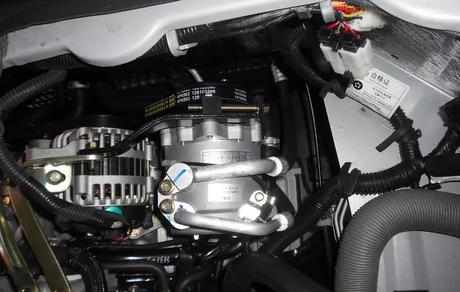
Is your AC compressor failing to turn on? Don't worry, we've got you covered. This guide will explain the common causes behind this issue and offer practical solutions to get your AC system back in working order.
If your AC compressor is not turning on, it could be due to several reasons. Here are some common troubleshooting steps you can take to identify and potentially fix the issue:
1. Check the Power
Ensure that the AC unit is receiving power. Check the circuit breaker or fuse box to see if the circuit for the air conditioner has tripped or blown a fuse. If so, reset the breaker or replace the fuse and see if the compressor starts.2. Thermostat Settings
Ensure the thermostat is set to "Cool" mode and the temperature is lower than the current room temperature. Sometimes, incorrect thermostat settings can prevent the AC compressor from turning on.3. Check the Thermostat
Test the thermostat by setting it a few degrees cooler than the current room temperature and see if the AC kicks in. If the thermostat is faulty, it may not be signaling the AC unit to turn on.4. Check the Air Filter
A clogged air filter can restrict airflow and cause the AC system to shut down to prevent damage. Check and clean or replace the air filter if it's dirty.5. Inspect the Condensate Drain
If the condensate drain is clogged, it can trigger a safety feature that shuts off the compressor. Clear any blockages from the drain to see if it resolves the issue.6. Check for Ice
If the evaporator coil has frozen, it can prevent the compressor from running. Turn off the AC and let it thaw, then investigate the cause of the freezing (low refrigerant, airflow issues, etc.).7. Refrigerant Levels
Low refrigerant levels can prevent the compressor from engaging. This may be due to a leak in the system. In such cases, it's best to call a professional HVAC technician to locate and fix the leak and recharge the refrigerant.8. Electrical Issues
Inspect the wiring and connections around the AC unit for any damage, loose wires, or burnt components. Faulty electrical connections can prevent the compressor from starting.9. Faulty Capacitor
The start/run capacitor is responsible for giving the compressor the initial electrical jolt to start running. If the capacitor is faulty, the compressor may not start. A technician can test and replace the capacitor if needed.10. Compressor Issues
If none of the above steps resolve the problem, there may be a problem with the compressor itself. Compressor failure can occur due to various reasons and usually requires professional diagnosis and replacement.In many cases, especially those involving refrigerant handling or electrical components, it is best to contact a qualified HVAC technician to diagnose and repair the issue safely. Attempting complex repairs without proper knowledge can lead to further damage and safety risks.
